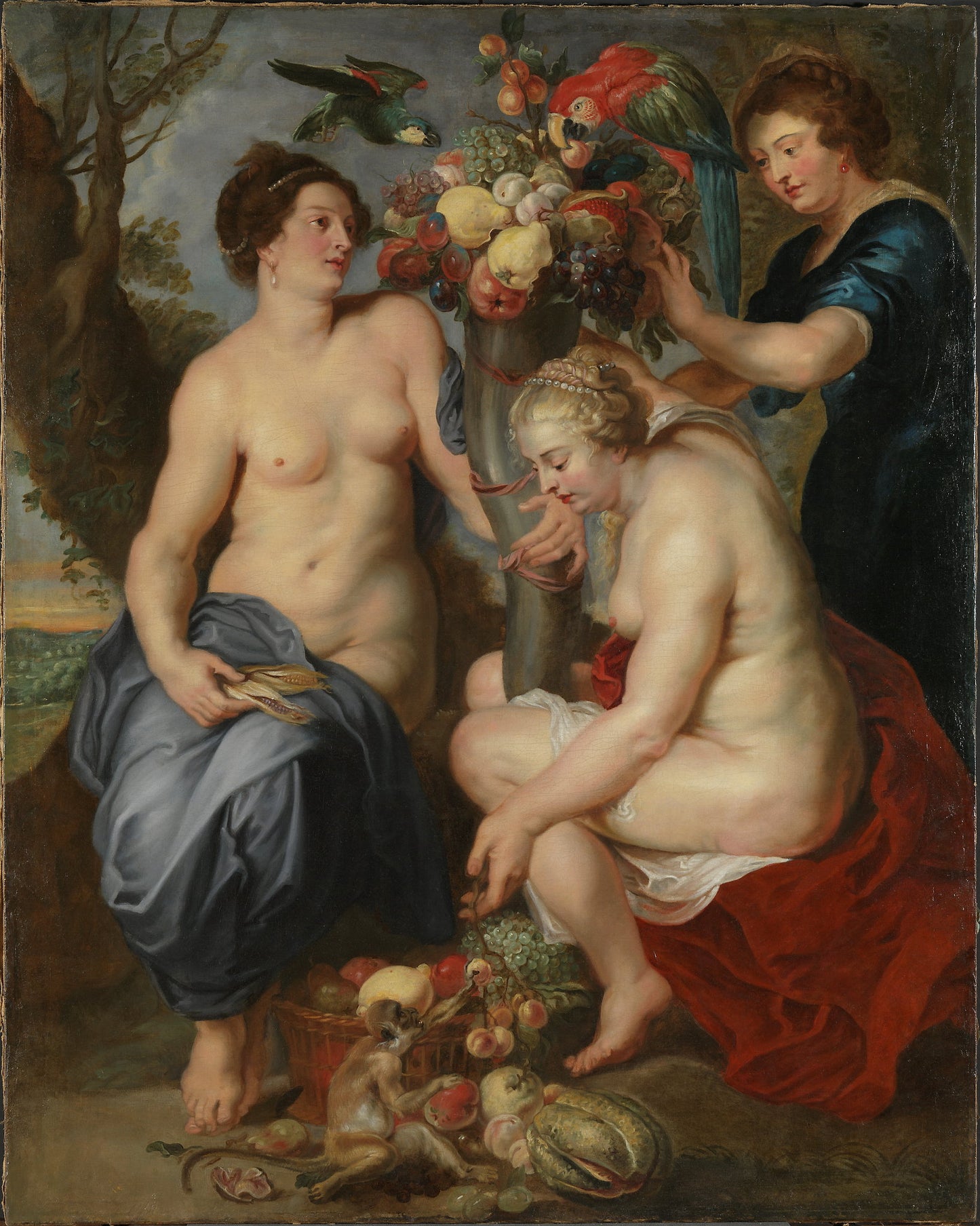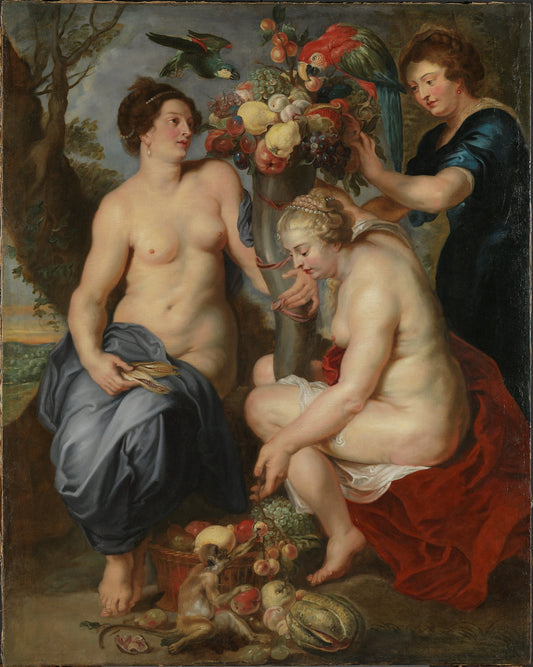Rubens Peter Paul, Snyders Frans
Ceres and Pomona
Ceres and Pomona
Couldn't load pickup availability
High-quality reproductions from the National Museum's collection. Posters by DAIDDA are printed on Litho White Matt - 230 gram photo paper in premium quality. Artprints by DAIDDA are printed on Moab Entrada Natural 300 gram cotton art paper in premium quality. Produced by DAIDDA.
About the original:
Dating: Approx. 1628
Other titles: Three Nymphs with Cornucopia (ENG)
Three Nymphs with the Horn of Plenty (ENG)
Ceres and Two Nymphs (ENG)
Designation: Painting
Material and technique: Oil on canvas
Technique: Oil
Material: Canvas
Dimensions: 150 x 119 cm
Subject: Visual arts
Classification: 532 - Visual arts
Motif: Mythological scene or person
Acquisition: Testamentary gift from Christian Langaard, received 1923
Inventory no.: NG.M.01353
Registration level: Single object
Owner and collection: The National Museum of Art, Architecture and Design, Visual Art Collections
Photo: Larsen, Frode
Shipping and returns
Shipping and returns
Shipping: We deliver to Scandinavia, the EU, the USA and several other countries. Please contact us if your country is not listed and we will try to arrange delivery.
Delivery time: 2-5 days within Norway, 7 days in Europe, 14 days globally.
Packaging: Our products are made to order and sent rolled in environmentally friendly packaging.
Customs Fees: International orders may be subject to customs fees, which are not included in shipping costs.
Return policy: You can return images within 14 days. See our returns page for more information.
Secure Payment: We never store your payment details. See our privacy policy for details.

See all works
-
Ceres and Pomona
Vendor:Rubens Peter Paul, Snyders FransRegular price From 150,00 NOKRegular priceUnit price per -
Game trader's stall
Vendor:Frans SnydersRegular price From 150,00 NOKRegular priceUnit price per

Frans Snyders
Frans Snyders was a Belgian painter born in 1579. He specialized in still life painting and is known for having painted motifs containing fruit, vegetables and flowers, as well as animal representations.
At the age of 14, he began an apprenticeship with Pieter Breugel the Younger and later became a master in Antwerp from 1603. Snyders' talent for depicting flora and fauna made a strong impression on his contemporary, the famous painter Peter Paul Rubens. The two artists collaborated on several works. Snyders' animal depictions were often exceptionally realistic and detailed, and his technique eventually became known for being very lifelike. Snyders' works were often large and imposing, and they were used to decorate large mansions and palaces. He was one of the most sought-after artists of his time, and his works can now be found in several of the world's most prestigious art museums.



